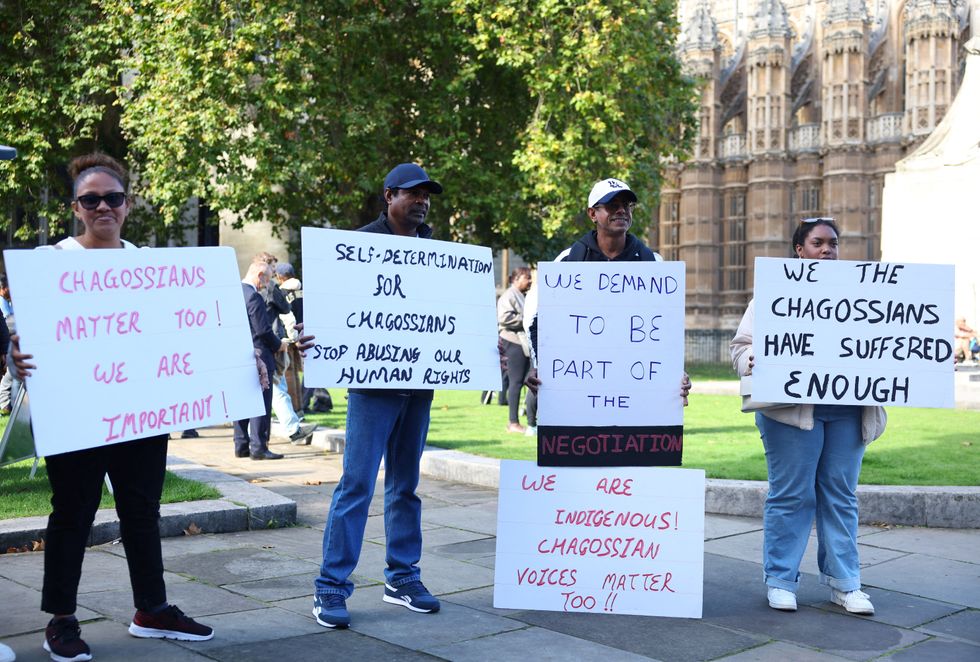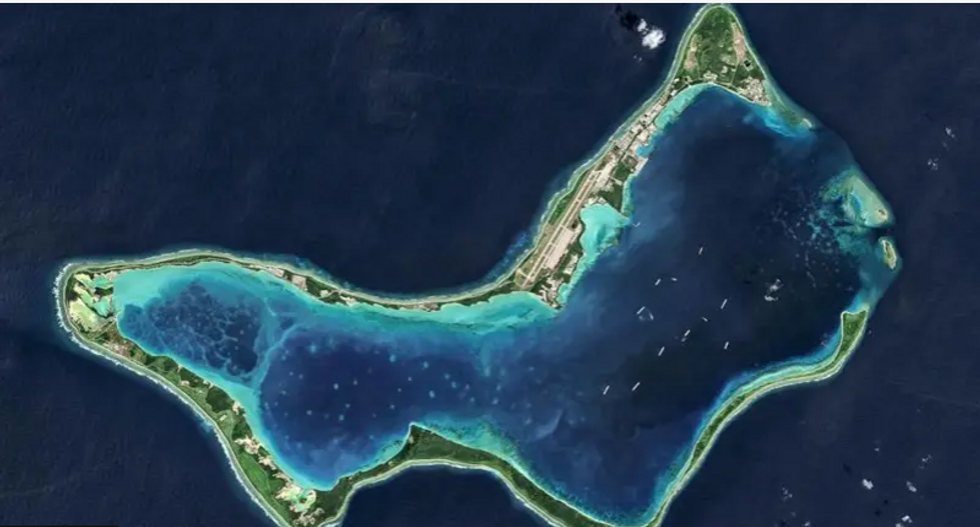'We want to stay British' plead Chagossians sold out by Starmer: 'Worse than the original expulsion'
Chagossian residents in the UK have reacted with shock and anger to the recent deal between the UK and Mauritius over the Chagos Islands
The deal which was announced on Thursday will see the British-controlled territory handed over to Mauritius
Don't Miss
Most Read
Trending on GB News
Chagossian residents in the UK have reacted with shock and anger to the recent deal between the UK and Mauritius over the Chagos Islands.
The agreement, announced last Thursday, will see the British-controlled territory handed over to Mauritius.
Many Chagossians living in Britain fear losing their citizenship and future access to their ancestral home.
Vanessa Calou, a Chagossian resident in London, told The Telegraph: "It was hugely distressing and people are very angry. Some people have said that they don't want to live in a world with this injustice."
 Chagossian residents in the UK have reacted with shock and anger to the recent deal between the UK and Mauritius over the Chagos IslandsReuters
Chagossian residents in the UK have reacted with shock and anger to the recent deal between the UK and Mauritius over the Chagos IslandsReutersThe deal, struck by Prime Minister Keir Starmer after years of negotiations, has left many Chagossians feeling betrayed and concerned about their future status and rights.
The Chagos Islands have a complex history of displacement and controversy.
Between 1967 and 1973, British colonial authorities forcibly removed all Chagossians from their homes to make way for a US naval base on Diego Garcia.
Misley Mandarin, whose father was among those exiled, described their subsequent life in Mauritius as "horrendous".
"We were treated as second-class citizens and we were marginalised," Mandarin said.
Many Chagossians later moved to the UK, with a significant community settling in Crawley.
Vanessa Calou and her brother Misley Mandarin came to Britain in 2002 when the government granted citizenship to Chagossians born abroad between 1969 and 1983.
"We're thriving and very happy," Mandarin said of their life in the UK. However, the recent deal has upended their sense of security and reignited long-standing grievances.
LATEST DEVELOPMENTS:
One of the primary concerns for Chagossians is the potential loss of their British citizenship.
Vanessa Calou, who co-runs the British Indian Ocean Territory (BIOT) Citizens platform, said she wanted to retain British or BIOT citizenship even if they return to the Chagos Islands.
The lack of consultation during the negotiation process has further angered the community. Calou and Mandarin claim that Chagossian representative groups were not informed about the details of the negotiations.
"The idea that this is a progressive deal is a hoax," Mandarin said. "It will give us no right of return."
Foreign Secretary David Lammy's assertion that the deal "secures a right to settlement for [Chagossians] to the outer islands" has been met with scepticism. Many Chagossians fear that without explicit guarantees, their dream of returning to their ancestral home may be jeopardised.
Chagossians fear that under Mauritian control, their access to the Chagos Islands may be limited.
Mandarin expressed concern about potential discrimination, citing past experiences in Mauritius. "Border police detain Chagossians and take their passports, or provoke them so that they can put them in prison."
 The deal will see the UK hand over the Chagos Islands to MauritiusGetty
The deal will see the UK hand over the Chagos Islands to MauritiusGettyThere are also worries about the islands' future development. Mandarin pointed to Mauritius' treatment of Agaléga, another island dependency, where India has been building a naval outpost. He fears a similar fate for the Chagos Islands.
"I'm seeing this happen in front of my eyes to another island, and I look at Chagos, which we can't get to currently, and I see 59 other islands that Mauritius could sell to India," Mandarin said.
The Mauritian government has not confirmed whether it will allow people to live on the Chagos Islands, leaving many Chagossians uncertain about their future rights of residence.
Many Chagossians are calling for self-determination and a referendum on the islands' future.
Calou said: "We want to have self determination, and maybe when we're in Chagos we can go to a referendum."
Her brother Misley Mandarin agreed, arguing that a referendum would be the fair course of action.
"It's not fair for them to say that we can come here and be British, and yet they give away our islands to Mauritius. So Keir Starmer has to do a referendum."
The siblings acknowledge that not all Chagossians share their views. However, Mandarin believes that "90 per cent" of the community supports their stance on retaining British citizenship and the right to return to their ancestral home.








